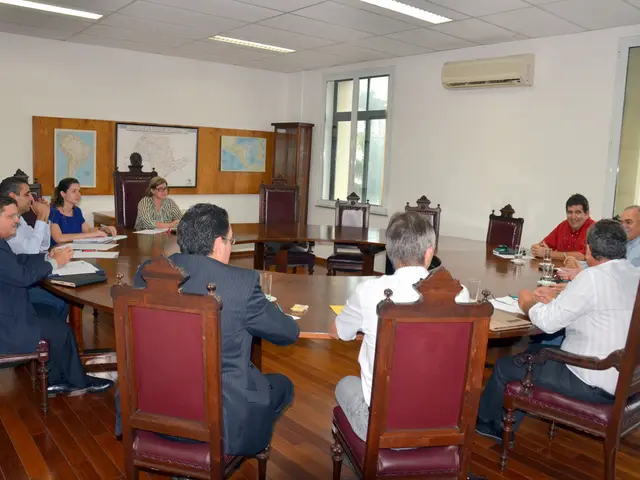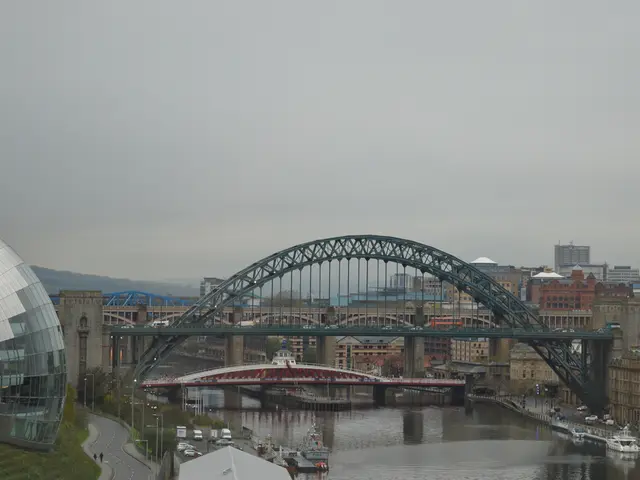"Every day": Zelensky states Ukraine prepares for truce
Relaxed Chat: Breaking Down Volodymyr Zelenskyy's Ceasefire Conditions
In a recent statement, Ukrainian President Volodymyr Zelenskyy discussed the potential for a ceasefire, expressing his readiness for this option at any given moment. However, he emphasized the need for a genuine and lasting ceasefire, not just a temporary one.
Zelenskyy outlined the following conditions for a ceasefire:
- Length: Unlike the 3-day ceasefire proposed by Russian President Vladimir Putin, Zelenskyy insists on a minimum 30-day ceasefire. He points out that shorter periods are insufficient for establishing diplomatic foundations.
- Monitoring: Alongside a U.S. proposal, Ukraine demands robust international monitoring to prevent Russian forces from using ceasefire pauses to regroup militarily.
While Putin unilaterally declared the May 7–11 ceasefire, Zelensky dismisses it as a propaganda move intended to paint a picture of control during Russia's Victory Day celebrations. Russian officials have yet to engage with Ukraine's 30-day proposal, continuing instead to focus on their shorter, non-renewable truce.
As the conflict unfolds, risks and strategic concerns complicate the prospects for a ceasefire. The Center for Countering Disinformation has cautioned that shorter ceasefires could provide Russian forces the opportunity to prepare for a summer offensive, considering the lack of verification mechanisms. Additionally, Zelensky raised safety concerns for foreign dignitaries attending Moscow's Victory Day events due to the risk of Russian false-flag operations.
International factors also play a role in the ceasefire dynamics. For example, the Kremlin confirmed Chinese President Xi Jinping's planned visit to Russia in May, which could potentially impact the negotiations. Another factor is Putin's nuclear rhetoric. While he currently views nuclear weapons as unnecessary in the conflict, he hasn't ruled out further escalation.
In light of these circumstances, Ukraine continues to advocate for a 30-day, internationally monitored ceasefire as the best path to meaningful negotiations, while Russia persists in advocating for shorter, unilateral pauses. Stay tuned for updates on this situation!
- Ukrainian President Volodymyr Zelenskyy has expressed his readiness for a 30-day ceasefire in the conflict, emphasizing the need for a genuine, lasting truce rather than a temporary one.
- Zelenskyy's ceasefire conditions include robust international monitoring to prevent Russian forces from using paused periods for military regrouping and a minimum 30-day duration, as opposed to the 3-day proposal by Russian President Vladimir Putin.
- General news outlets report that the May 7–11 ceasefire, unilaterally declared by Putin, was dismissed by Zelensky as a propaganda move intended to convey control during Russia's Victory Day celebrations.
- As the conflict progresses, concerns arise about the potential use of shorter ceasefires by Russian forces to prepare for a summer offensive, and safety concerns for foreign dignitaries attending Moscow's Victory Day events due to the risk of Russian false-flag operations.







